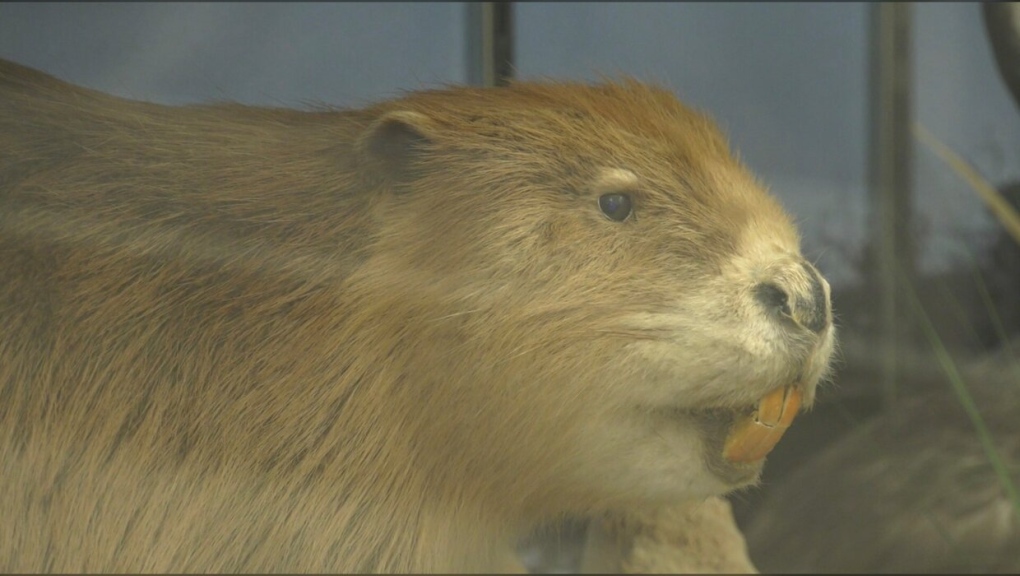Lethbridge College unveils new Wildlife Analytics Lab, first of its kind in Canada
 The lab analyzes animal cementum, the hard tissue covering the roots in teeth, through a series of tests and processes.
The lab analyzes animal cementum, the hard tissue covering the roots in teeth, through a series of tests and processes.
Lethbridge College’s newest lab addition is putting the focus on animal teeth.
Those at the Centre for Technology, Environment and Design (CTED) say the Wildlife Analytics Lab (WAL) fills a need provincially and nationally.
"The wildlife analytics lab is the first of its kind in Canada and is starting off focusing on cementum analysis, which is tactical jargon for looking inside teeth, to determine the age of animals," said Dr. Everett Hanna, an environmental sciences instructor at the college.
The lab analyzes animal cementum, the hard tissue covering the roots in teeth, through a series of tests and processes.
This data, once retrieved, can not only help determine an animal’s age but also its migratory patterns and assist with disease management.
"Thousands of teeth are collected annually across Canada and typically sent to the United States for analysis because there was no previous service provider in Canada," said Hanna.
 This data, once retrieved, can not only help determine an animal’s age but also its migratory patterns and assist with disease management.
This data, once retrieved, can not only help determine an animal’s age but also its migratory patterns and assist with disease management.
"We're now offering an opportunity for Canadian researchers and agencies, and others around the world, to send teeth to us for our lab to process those samples that otherwise would've had to go to the United States for example."
The teeth come from a variety of mammals, including deer, coyotes, wolves and even bears.
The lab comes thanks to $145,000 in funding and gifts from the Alberta Professional Outfitters Society (APOS) who say there's a huge demand for this type of reliable research.
"We had some resources available and we thought this was a great project for Alberta," said APOS’s President, Corey Jarvis.
"It's a great opportunity to incorporate education as well as meeting the scientific needs of Alberta and wildlife management in particular."
The lab is already receiving contracts from agencies and researchers to help improve conservation efforts across Canada.
"We’re getting interest from people from Nunavut to British Columbia to Alberta and all the way out to Newfoundland where people are collecting these teeth from all mammals that are out there that we have an interest in managing that have cementum for us to do aging for them," Hanna told CTV News.
On top of being a self-sustaining, fee-for-service lab, students will also be able to use it as part of their studies and training.
CTVNews.ca Top Stories

Poilievre writes to GG calling for House recall, confidence vote after Singh declares he's ready to bring Liberals down
Conservative Leader Pierre Poilievre has written to Gov. Gen. Mary Simon, imploring her to 'use your authority to inform the prime minister that he must' recall the House of Commons so a non-confidence vote can be held. This move comes in light of NDP Leader Jagmeet Singh publishing a letter stating his caucus 'will vote to bring this government down' sometime in 2025.
School custodian stages surprise for Kitchener, Ont. students ahead of holiday break
He’s no Elf on the Shelf, but maybe closer to Ward of the Board.
Kelly Clarkson's subtle yet satisfying message to anyone single this Christmas
The singer and daytime-talk show host released a fireside video to accompany her 2021 holiday album, “When Christmas Comes Around” that she dubbed, “When Christmas Comes Around…Again.
Judge sentences Quebecer convicted of triple murder who shows 'no remorse'
A Quebecer convicted in a triple murder on Montreal's South Shore has been sentenced to life in prison without chance of parole for 20 years in the second-degree death of Synthia Bussieres.
At least 2 dead, 60 hurt after car drives into German Christmas market in suspected attack
A car plowed into a busy outdoor Christmas market in the eastern German city of Magdeburg on Friday, killing at least two people and injuring at least 60 others in what authorities suspect was an attack.
16-year-old German exchange student dies after North Vancouver crash
A 16-year-old high school student from Germany who was hit by a Jeep in North Vancouver, B.C., last weekend has died in hospital, authorities confirmed.
Poilievre to Trump: 'Canada will never be the 51st state'
Conservative leader Pierre Poilievre is responding to U.S. president-elect Donald Trump’s ongoing suggestions that Canada become the 51st state, saying it will 'never happen.'
Canadiens executive says he has 'no concern' about members of the front office travelling to Russia
Montreal executive vice president of hockey operations Jeff Gorton said he has 'no concern' about members of the Canadiens' front office travelling to Russia with the country’s war in Ukraine ongoing.
Speeding drivers get holiday surprise from 'Officer Grinch'
Drivers in the Florida Keys who exceed the speed limit in school zones may run into a well-known gloomy green creature and get a surprising 'gift.'


































